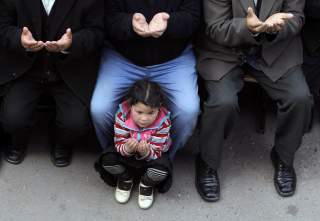Uzbeks Feel Challenged by October Terror Attack
As more Central Asians become U.S. citizens and voters, their impact and influence on domestic American political dynamics will inevitably grow.
A second test will be political activism, including whether Central Asian Americans themselves begin running for public office. None yet has. But many immigrants from the region work in high positions in both federal and state-level government, as well as nongovernmental and private sector organizations.
As more Central Asians become U.S. citizens and voters—energized by issues such as the Saipov case—their impact and influence on domestic American political dynamics will inevitably grow.
But the most important step will be whether debates around identity yield greater cohesion or only more division in the community itself. After all, even among overseas Uzbeks, there are discordant voices about whether terrorists, such as Saipov should be identified as “Uzbek,” as well as questions of community responsibility.
Alisher Siddique, director of the Uzbek Service at Radio Liberty, sees Uzbek resentment toward the identification of terrorists as “Uzbek” as a fundamental community sickness. It is illogical, he argues, not to accept their origin and not to make peace with the fact that they are the representatives of a mentality and a country.
“Being in denial gives nothing to Uzbeks,” he says. “And it does not help the Uzbek government either. Because the reality is that there are Uzbeks out there who support terrorism, extremism and violent methods to achieve goals. They exist, and by not recognizing that bitter truth, Uzbeks only fool themselves.” Siddique concludes: “What I say to these people who are devastated by the news about Uzbek terrorists is that by denying and denouncing those who [worry that something in Uzbekistan is producing extremism], you are not changing or fixing anything.”
And many online voices mirror Siddique’s point of view. The world does not care about “our feelings,” one says; it is, therefore, “our problem.”
This Uzbek resentment reflects wider debates in the Muslim world and among other Americans who practice Islam: so many detest the aspersions cast on entire communities and an entire world religion by the notion of “Islamic” terrorists.
That is no less true of the Uzbek community. And so for Uzbek communities at home and overseas, that uncomfortable debate is just beginning. But for the first time, community debates may lead to robust political organization and eventual public impact. That would be a change for the better, consistent with America’s best traditions of citizenship and civic responsibility.
Navbahor Imamova is an international broadcaster with the Voice of America’s Uzbek Service, South & Central Asia Division. The views expressed in this article do not reflect the views of the Voice of America.
Image: Reuters.

